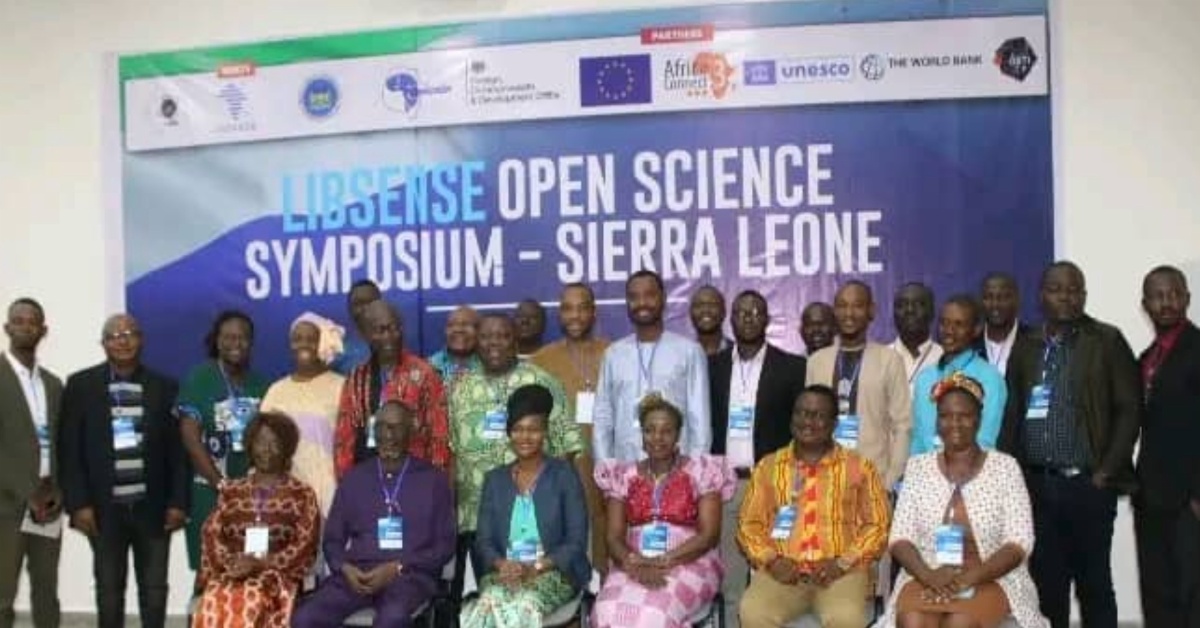The Ministry of Technical and Higher Education (MTHE), Sierra Leone Research and Education Network (SLREN), and the West and Central African Research and Education Network (WACREN) recently collaborated in a symposium with key stakeholders from the fields of science, research, and innovation. The primary focus was to discuss and strategize a national approach to advancing open science in Sierra Leone.
Generously funded by the UK Foreign Commonwealth Development Office (FCDO), the symposium aimed to cultivate an environment conducive to the adoption of scientific practices throughout Sierra Leone's research community. This goal was to be achieved by firmly integrating open science into the country's broader national agenda.
In her inaugural speech, Dr. Haja Ramatulai Wurie, the Minister of Technical and Higher Education, expressed her appreciation to the symposium's organizers for facilitating a platform through which they could collectively shape their vision of establishing a robust national open science infrastructure in Sierra Leone. She underscored that open science was not just an abstract notion but a transformative agent capable of elevating the academic research capabilities of Sierra Leone, promoting innovation, and driving sustainable development.
Dr. Wurie stressed the need for participants to cultivate a policy environment that fosters open science. She urged for a focus on principles such as openness, collaboration, and equitable access to knowledge.
She further highlighted that this policy environment required a comprehensive understanding of the strengths and weaknesses in addition to providing institutions with the necessary infrastructure to support transparent research practices, open data sharing, and inclusive collaboration. "By fostering a culture of openness and collaboration, individuals can contribute to the global knowledge pool while addressing worldwide challenges," she emphasized.
She also encouraged stakeholders to recognize the pivotal role of digital libraries as repositories of knowledge. These libraries not only play a central role in open science but also serve as gateways to open-access publications, data resources, and educational materials.
Dr. Wurie urged participants to consider key components during their discussions, including inclusive collaboration, translating research findings into policy and practice, publishing open data to enhance global research visibility, providing open educational resources to ensure equal educational opportunities for all, and addressing ethical considerations.
She acknowledged that while there is always room for improvement, Sierra Leone had already made substantial strides in reshaping its research landscape. Dr. Wurie emphasized the importance of capitalizing on these achievements and encouraged members to actively collaborate both within and across different levels.
Ibrahim Sannoh, the Deputy Minister of Communications, Technology, and Innovation, expressed his enthusiasm for participating in the symposium. He called on attendees to collectively strive to establish legacies in terms of ICT development, digitization, and international competitive benchmarks. He underlined the overarching goal of the Ministry to create a conducive environment for digitization in Sierra Leone.
The symposium concluded with key resolutions, including the commitment of the Ministry of Technical and Higher Education to spearhead inter-ministerial discussions aimed at promoting and affirming a strong commitment to open science principles. This commitment would be directed towards research, innovation, and societal advancement in Sierra Leone. The participants recommended the formation of a task force comprising experts from various relevant fields to formalize this commitment through the creation of a national open science policy.
The Sierra Leone Research and Education Network (SLREN) was tasked with leveraging its higher education and research communities to take the lead in establishing and maintaining open science infrastructures.

